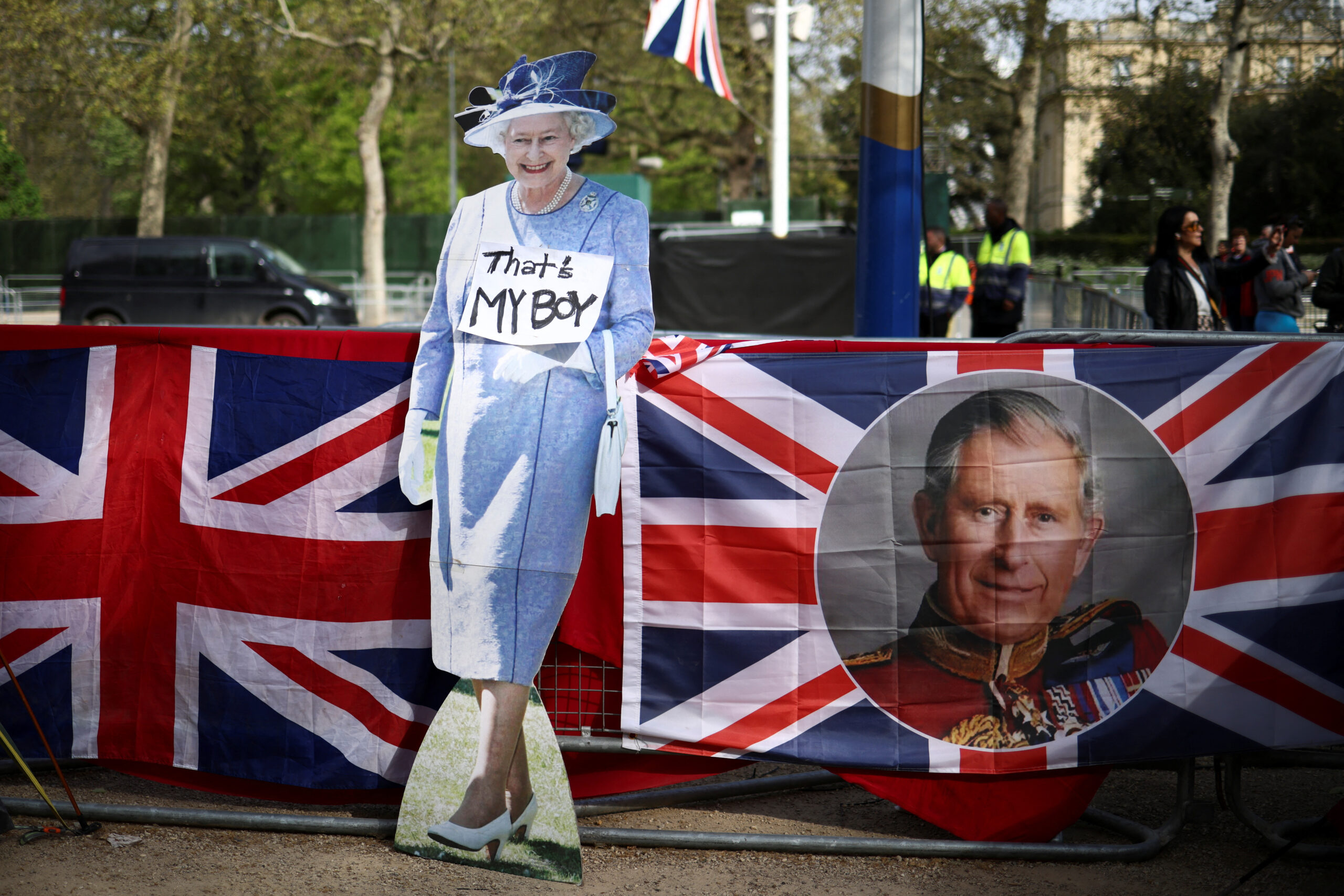It’s Time for a Republican Movement – And Young People Will Lead It
Princess Di, this one’s for you.
by Kimberly McIntosh
4 May 2023

Last Friday, I crossed Waterloo Bridge and walked onto the Strand in central London, where I came face to face with a barrage of flags, union jacks and emblem-adorned fabric to mark the upcoming coronation of King Charles III. I turned up a side street to see another scene that’s come to symbolise modern Britain: a long queue for a soup kitchen.
Two days earlier, the foodbank network the Trussell Trust announced that the cost of living crisis has helped drive more than 750,000 people to food banks for the first time. Between 2022 and 2023, it delivered three million food parcels – its highest ever total. Indeed, nearly half of adults surveyed by the Office for National Statistics recently reported being worried about the cost of energy and food.
It’s little wonder, then, that according to YouGov, 51% of people think the coronation – which will cost the taxpayer around £100m despite promises of a “slimmed-down” event – shouldn’t be publicly funded. For the over 65s, it was a near-even split: 43% think it should, 44% that it shouldn’t. Among 18-24 year olds, the divide was more marked: 62% oppose public funding, while just 15% support.
But the coronation has also reignited debates about whether the monarchy should exist at all. In March, Ipsos Mori found that the royal family’s favourability rating had dropped to the lowest figure recorded by the pollster. There are clear differences in beliefs by age here, too. While 52% of 55-75 year-olds think Britain would be worse off without the monarchy, only 26% of 18-34 year-olds agree. In fact, 34% of the younger cohort think it’d be better if the monarchy were abolished altogether.
In April, YouGov polling reinforced these findings. 78% of over-65s were supportive of the monarchy, compared to just 32% of 18-24 year-olds. 38% of this age group would prefer an elected head of state, while 78% said they weren’t interested in the royal family. But the most revealing and robust research comes from NatCen, which has collected data on public attitudes to the monarchy since 1983. It found that the belief the monarchy is ‘very important’ is at its lowest ever. Only 12% of 18–34 year-olds view it as such, compared to 42% of the 55+ age group.
Put another way, all the evidence suggests young people are much more likely to be either unbothered by the monarchy, want the institution abolished, want an elected head of state, or all of the above. Could we be the generation that brings the monarchy to an end?
In answering this, it’s important to note that the royal family is pretty resilient. It’s survived scandal after scandal, and shown a remarkable ability to adapt to changing times. It clawed back popularity in the aftermath of Princess Diana’s ostracisation and untimely death. It’s weathered sexual abuse claims against the King’s brother, Prince Andrew.
What’s more, in recent years, support for the monarchy has been boosted by milestone events: William and Kate’s marriage, the birth of their children, and the Queen’s Diamond Jubilee. There aren’t guarantees that the generational shifts we’re seeing now will bring down an institution that’s 1,200 years old, to be buried alongside other things that have long served their purpose: John Cleese’s bad jokes, The Spectator, landlordism.
But there are reasons for republicans to be hopeful. For one, other shifts are in our favour. Analysis by the Financial Times found that British 35-year-olds are the least conservative in recorded history, and they aren’t ‘naturally’ getting more conservative with age. Tory voters have been found to be much more likely to support the monarchy than Labour supporters.
Following the death of the Queen last year, it’s clearer than ever that the monarchy isn’t a family, but a whole institution. The coronation, that passing of the baton from mother to son, an inheritance by virtue of birth and bloodline, symbolises the realities of modern Britain that pain me the most. That elitism is endemic. That unearned wealth accumulates as people on low-incomes struggle to heat their homes. That mediocrity is the purview of the privileged and powerful. And that a refusal to reckon with the violence of colonialism soldiers on.
There isn’t a strong movement for a British republic, no groundswell of demand from below. People, understandably, have other preoccupations. But dissatisfaction, disillusionment and indifference to the monarchy, particularly among the young, is fertile ground on which to build a movement. And we should. Britain can’t claim to be a functioning democracy otherwise.
Kimberly McIntosh a writer and commentator.


